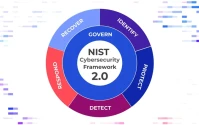Alright, folks, buckle up. Because what's brewing in Ireland right now is far more than just a simple merger – it's a potential blueprint for the future of international education and collaboration. Queen's University Belfast (QUB) and Dundalk Institute of Technology (DKIT) joining forces? On the surface, it might seem like just another institutional shuffle. But dig a little deeper, and you'll see something truly remarkable: the possible genesis of a whole new model for how universities can operate in an increasingly interconnected world.
The Dawn of Borderless Education?
The news is this: DKIT is set to become a "university college" of QUB, with students receiving their degrees from Queen's. The Irish government is aiming for a 2026/2027 launch, and the initiative has already gotten the thumbs-up from senior ministers. This isn't just about streamlining administration; it's about strengthening cross-border collaboration, boosting research and innovation, and, most importantly, expanding opportunities for students. Think of it as the academic equivalent of the EU, but on a more focused, manageable scale.
What I find particularly exciting here is the potential for this model to be replicated elsewhere. Imagine universities across different countries partnering up, sharing resources, and offering students a truly global education without the bureaucratic nightmares. What if a student in rural Montana could access the resources of a top university in Germany, all through a similar collaborative framework? The possibilities are staggering.
Economy Minister Caoimhe Archibald gets it, saying strengthening academic links will "expand opportunities" for students and researchers. And students themselves are buzzing. Gerry O'Brien, president of DKIT Students Union, believes it'll make education more accessible and create "amazing opportunities" for the region. It's that ground-level enthusiasm that really convinces me this isn't just top-down policy; it's something people genuinely want.
This reminds me of the early days of the internet. Remember when people were skeptical about online communities? Now, we can't imagine life without them. This QUB-DKIT collaboration feels like a similar leap – a bold step towards a future where education transcends geographical boundaries.
Of course, there are challenges. Integrating different academic cultures, navigating regulatory hurdles, and ensuring equitable access for all students won't be easy. But the potential rewards – a more diverse, innovative, and globally connected education system – are well worth the effort. And let's be honest, the name change for DKIT is a big deal. Will it fully embrace the QUB brand, or will they find a way to honor the history of DKIT while signaling its elevated status?

And here's where things get really interesting. Irish Minister James Lawless called this "a major step forward in creating the first ever all-island university." He emphasizes that DKIT qualifications will become Queen's degrees, a "great boost" for the educational and business communities along the Dublin-Belfast corridor. Dundalk Institute of Technology and Queen's University Belfast in new cross-border collaboration - BBC
But is this truly the first all-island university? What about the numerous cross-border research initiatives and student exchange programs that have existed for years? Perhaps "most integrated" or "most formally recognized" would be more accurate. But hey, I can't blame him for the enthusiasm!
From Local to Global: A New Paradigm?
The "Big Idea" here is about more than just Ireland. It's about the future of international collaboration. In a world increasingly fractured by political division, initiatives like this offer a glimmer of hope. They demonstrate that even across borders, people can come together to build something better.
Think about the printing press. Before it, knowledge was confined to a select few. The printing press democratized information, sparking the Renaissance and the Enlightenment. This QUB-DKIT collaboration, while on a smaller scale, has the potential to do something similar for education – to democratize access to knowledge and opportunity on a global scale.
However, there's a responsibility that comes with this kind of innovation. As we create more interconnected systems, we also need to be mindful of issues like data privacy, intellectual property, and cultural sensitivity. We need to ensure that these collaborations are truly equitable and that the benefits are shared by all, not just a select few.
And I have to say, when I first read about this initiative, I just sat back in my chair, speechless. This is the kind of thing that reminds me why I got into this field in the first place – the power of education to transform lives and build a better world.
A Glimpse of a Brighter Future
This isn't just about two institutions merging; it's about building bridges, fostering innovation, and creating opportunities for students across the island of Ireland and, potentially, the world. It's a bold vision, and I, for one, am incredibly excited to see where it leads. And who knows? Maybe this will inspire other universities to think outside the box and forge their own global partnerships. One can hope, right?










